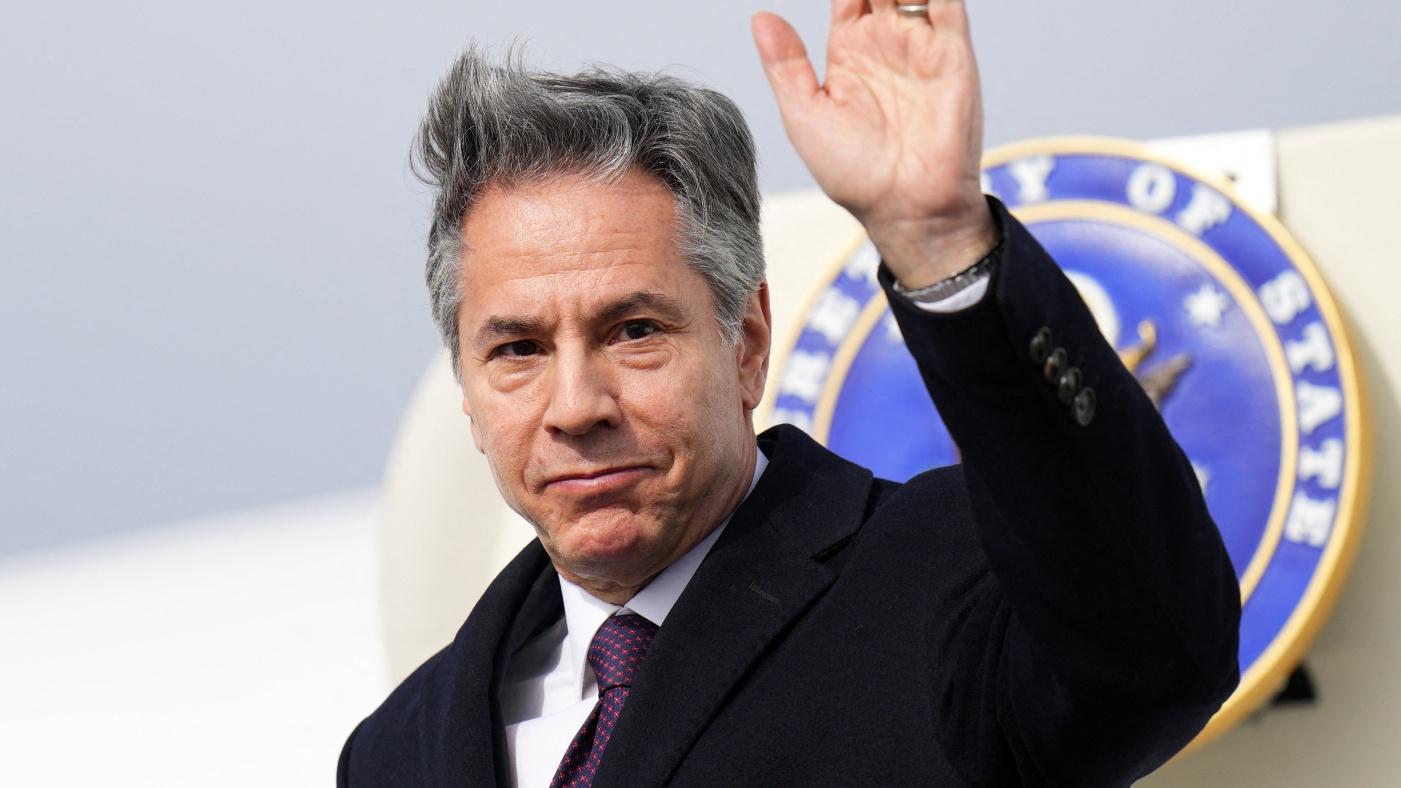Is China going to send weapons to help Russia in Ukraine?
Fears grow in Washington that Beijing may be about to increase its support for Putin

A free daily email with the biggest news stories of the day – and the best features from TheWeek.com
You are now subscribed
Your newsletter sign-up was successful
The US is “very concerned” that China could be considering sending lethal arms to aid Russia’s war efforts in Ukraine after a “fraught” meeting between the two nation’s top diplomats.
The Financial Times reported that “frank exchanges” were had between US Secretary of State Antony Blinken and China’s top foreign policy official Wang Yi in the first meeting between high-level Washington and Beijing officials since the US shot down a suspected Chinese spy balloon.
At the meeting on the sidelines of the Munich Security Conference Blinken reportedly demanded that China stop the use of alleged spy balloons over the US and stressed that there would be “serious consequences” for US-China relations if Beijing provides Russia’s military with any material support.
The Week
Escape your echo chamber. Get the facts behind the news, plus analysis from multiple perspectives.

Sign up for The Week's Free Newsletters
From our morning news briefing to a weekly Good News Newsletter, get the best of The Week delivered directly to your inbox.
From our morning news briefing to a weekly Good News Newsletter, get the best of The Week delivered directly to your inbox.
Later, speaking to NBC News, Blinken said the US had information that indicated that China was “strongly considering providing lethal assistance to Russia”.
“I made clear [to Wang] that would have serious consequences in our relationship as well, something that President [Joe] Biden has shared directly with President Xi [Jinping] on several occasions,” he said, adding that Washington would release more information in due course.
Amid worsening US-China relations, Biden made a surprise visit to Kyiv today in what The New York Times called “a demonstration of his administration’s resolve in the face of Russia’s yearlong invasion of the country”.
As the first anniversary of the conflict approaches, the US president pledged additional weapons supplies to Ukraine, including artillery ammunition, anti-armour systems, and air surveillance radar.
A free daily email with the biggest news stories of the day – and the best features from TheWeek.com
What did the papers say?
Relations between Washington and Beijing were “already poor” thanks to the alleged Chinese spy balloon, which was shot down over South Carolina earlier this month. Both sides had exchanged “angry words”, said the BBC, but equally they seemed “embarrassed by the incident and seemed ready to move on”.
But if China were to deliver weapons to Russia to aid their invasion of Ukraine then US-Chinese relations would inevitably deteriorate “much more severely”. Republican senator Lindsey Graham told ABC News that such a move would be “catastrophic” to US-Chinese relations. “It would be like buying a ticket on the Titanic after you saw the movie,” he told the broadcaster.
Last month, the Biden administration raised concerns with Beijing over evidence that Chinese companies had sold non-lethal equipment to Russia for use in Ukraine, reported CNN. This included items like “flak jackets and helmets”, according to sources, but China had “stopped short” of providing lethal weapons systems requested by Russia “because it has not wanted to be seen as a pariah on the world stage”.
But with signs that Beijing could be now considering just such a move, US government officials are now warning “publicly and privately” that the US is monitoring closely for any violations of Western sanctions prohibiting military support for Russia.
Beijing is in fact already providing some technology and equipment, including drones used to target Ukrainian forces, The Wall Street Journal reported. The drones are an example of how the Russian military “has been able to draw critical items for its military from abroad, despite a wide-ranging Western pressure campaign intended to restrain Moscow’s ability to continue the war”, added the paper.
What next?
Blinken’s comments have come ahead of a scheduled visit by Wang to Moscow, as part of the Chinese diplomat’s tour of Europe.
Speaking at the Munich Security Conference, Wang announced that China was to launch a “peace initiative” on the anniversary of the war and has “already been consulting Germany, Italy and France on its proposals”, said The Guardian.
The paper said he told the conference that Beijing’s peace plan would underscore the “need to uphold the principles of sovereignty, territorial integrity and the UN Charter”, but at the same time respect the “legitimate security interests of Russia”.
“We need to think calmly, especially our friends in Europe, about what efforts should be made to stop the warfare; what framework should there be to bring lasting peace to Europe; what role should Europe play to manifest its strategic autonomy,” Wang said.
Western leaders have reacted “nervously” to Wang’s speech, said The Guardian, with further details to be announced on the anniversary of the invasion on 24 February, but have also “cautiously welcomed” the move “as a first sign that China recognises the war cannot be regarded solely as a European affair”.
The US believes the plan is likely to be a “vague assertion of the value of peaceful dialogue” but with few details, while European diplomats were also said to be sceptical about “the value of a broad enunciation of vague principles, questioning whether China was really prepared to distance itself from its close partner Russia”.
And it is unlikely that China’s idea of “peace” will “match that of Europe”, said Politico. “China has not been able to condemn the invasion,” Nato Secretary-General Jens Stoltenberg later told reporters, himself branding the plan as “quite vague”, and adding that peace was only possible if Russia respected Ukraine’s sovereignty.